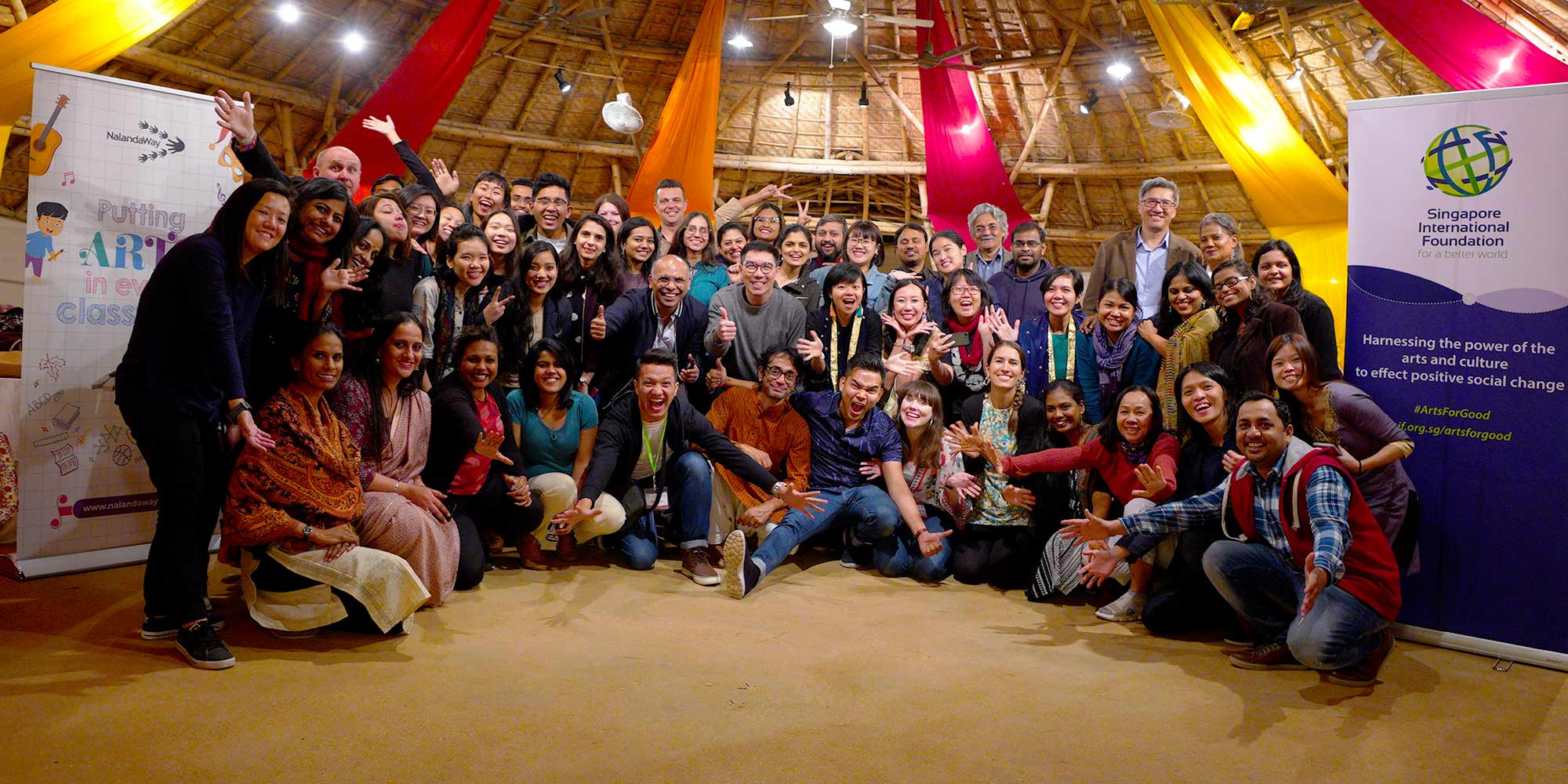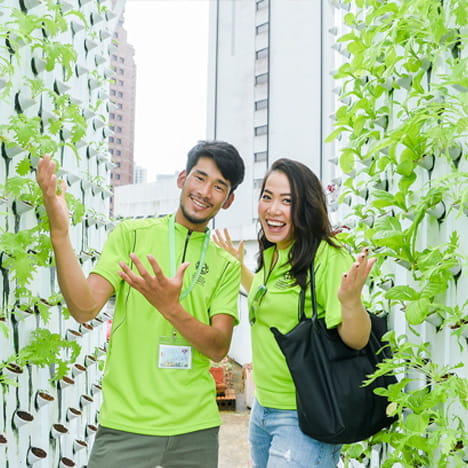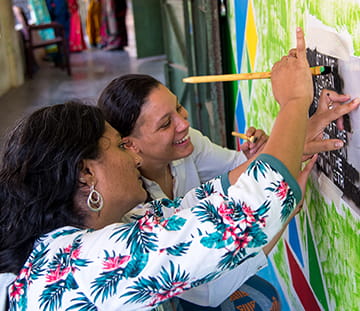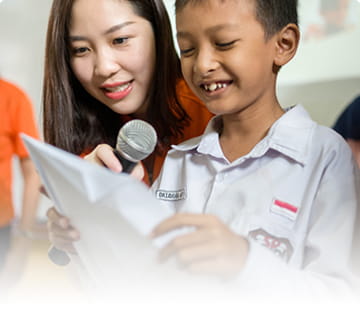Singapore And South Korea Exchange Insights On The Impact And Challenges Of COVID-19
A webinar co-organised by the Singapore International Foundation and the Korea Foundation highlighted the importance of partnerships to address the current pandemic.
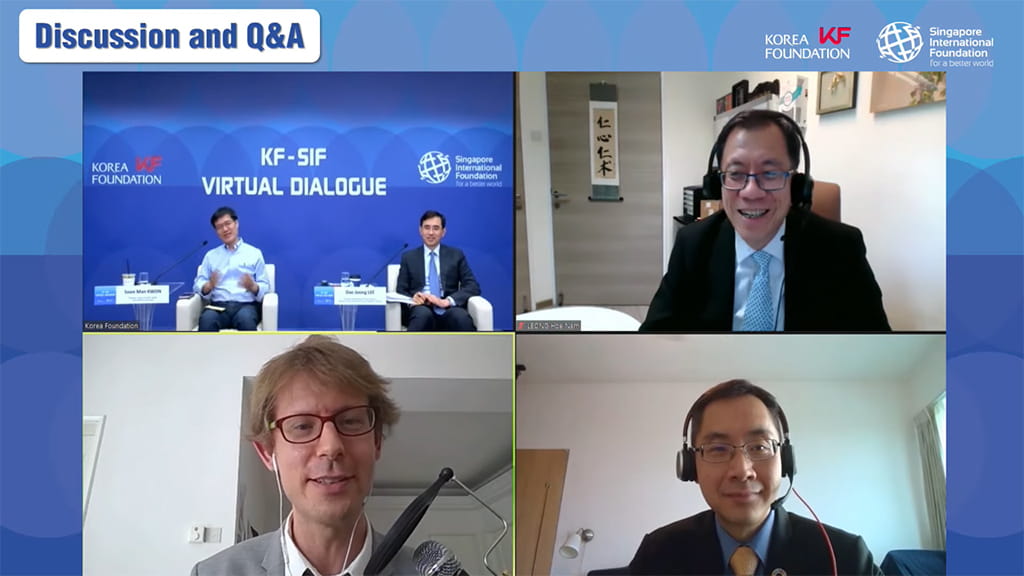
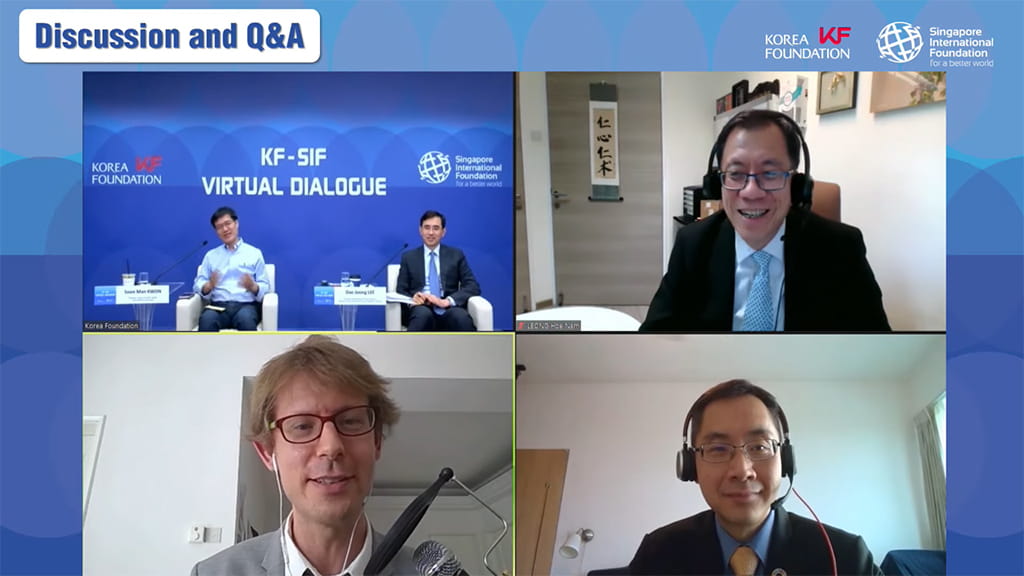
“COVID-19 presented an unprecedented problem which can be solved by people coming together,” said Mr Lee Dae Joong, Director of Development Finance Division at the Ministry of Economy and Finance, Republic of Korea. “It is the right time for the government to boost capacity and capability to track and respond to the crisis, while incentivising collective action and cooperation. The COVID-19 pandemic underscores the need for the government and its citizens to work together more effectively than ever before.”
Mr Lee was speaking at “Public-Private Partnerships in the Fight against COVID-19”, a webinar co-organised by the Singapore International Foundation (SIF) and the Korea Foundation (KF) on 9 June 2020. In a bid to facilitate cross-cultural sharing and learning surrounding the crisis, the session explored the transformative power of partnerships within the public and private sectors.
Also speaking at the dialogue were Prof Teo Yik Ying, Dean of Saw Swee Hock School of Public Health at the National University of Singapore, Dr Leong Hoe Nam, Infectious Diseases Physician at the Rophi Clinic, and Prof Kwon Soonman, Graduate School of Public Health, Seoul National University. The session was moderated by Associate Prof Erik Mobrand, Graduate School of International Studies, Seoul National University and Visiting Scholar, Centre for Asian Legal Studies, National University of Singapore.
The panel concurred that while governments should lead the fight against the virus, the scale and rapid rate of transmission required a response that extended beyond the public sector. Speakers illustrated examples to show that collaborations between governments and the community – including the academia and volunteer welfare groups – helped in the establishment of necessary policies and measures to mitigate the outbreak. For instance, private companies from both countries contributed efforts to developing test kits and digital tracking apps. Grassroot organisations, such as Singapore’s HealthServe, came up with innovative solutions to provide remote consultation and telemedicine services to migrant workers during this period. Through the discussions, it was evident that social capital and trust between the government and its people were important factors in responding to the pandemic.
The dialogue also marked the importance of global cooperation for positive impact. Panellists sought to learn from each other’s unique experience during the dialogue. For instance, how Singapore administered school closures for full home-based learning, and how South Korea made strides in its COVID-19 testing procedures. Nonetheless the panellists recognised that when it came to working together in a crisis, international understanding was critical. Professor Teo said, “[In a global partnership] we must remember that each country is working with different historical, social and cultural, capacity and capability, economic, and political contexts.”
In line with the SIF’s mission to connect world communities and facilitate greater understanding through knowledge-sharing and cross-cultural dialogues, the webinar underscored Singapore and South Korea’s lessons from the COVID-19 pandemic with an international audience. If you missed the webinar, watch the recording here or email [email protected] for more information.
